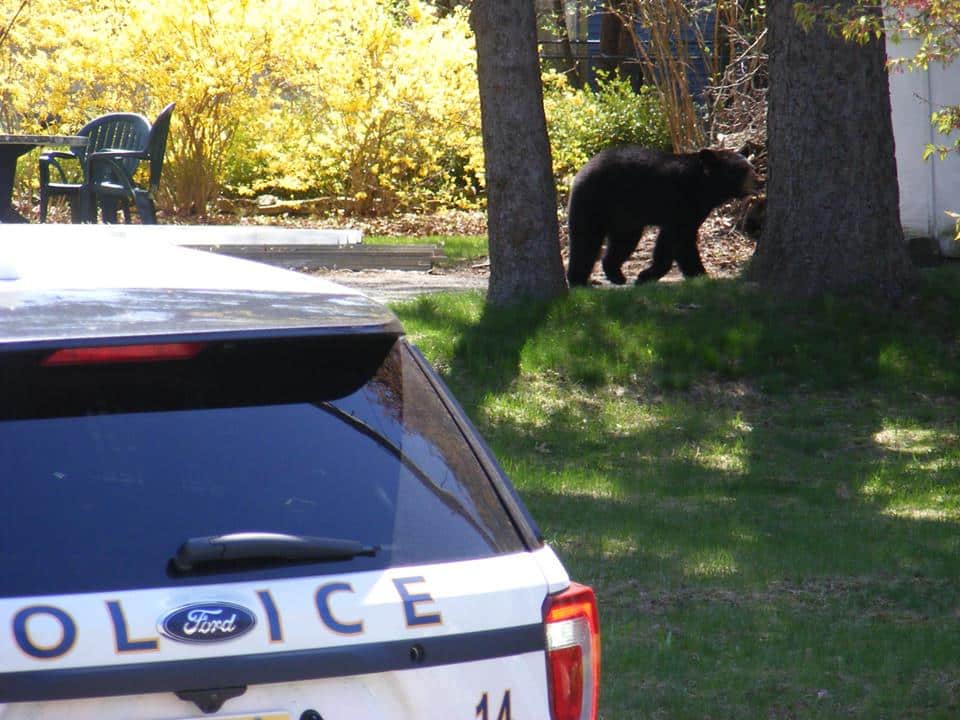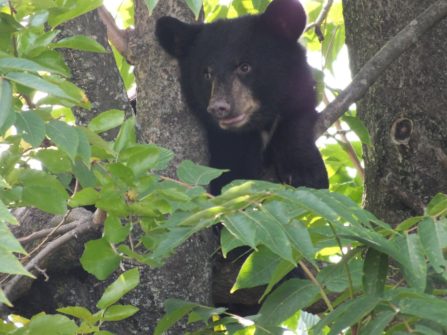
New Jersey Sees Decline in Bear Encounters This Year, But Officials Urge Continued Caution
file photo courtesy of Boyd Loving
the staff of the Ridgewood blog
Ridgewood NJ, New Jersey has seen a significant 28.21% decrease in reported black bear incidents in 2025 compared to the same period last year, according to the New Jersey Department of Environmental Protection (NJDEP). From January 1 to May 21, the state logged 257 bear-related incidents, down from 358 during the same period in 2024.

📉 Bear Sightings, Damage, and Nuisance Incidents Down Statewide
The Black Bear Activity Reports by NJ Fish and Wildlife categorize bear encounters into three levels:
-
Category I: Bears threatening public safety or property
-
Category II: Nuisance bears that do not pose direct threats
-
Category III: Normal, non-threatening bear behavior
While not all incidents handled by local police are included in the DEP data, the overall decline is evident. Reported bear sightings dropped nearly 33%, with 63 sightings this year compared to 94 in 2024. Damage and nuisance incidents also fell from 264 last year to 194 in 2025.
Top counties for bear activity so far in 2025:
-
Sussex County: 103 incidents
-
Warren County: 65 incidents
-
Morris County: 36 incidents
From April 20 to May 21, bear-related activity fell by nearly 50% compared to the same time in 2024.
🗣️ “It is difficult to draw any conclusions as to short-term, seasonal changes in black bear incidents,” said Larry Hajna, NJDEP spokesperson. He emphasized that food availability, weather, and hunting patterns all affect bear behavior.
📄 View the full Black Bear Activity Reports at: https://dep.nj.gov/njfw/bears/activity-reports
🕒 When Are Black Bears Active in New Jersey?
Black bears are not true hibernators. Instead, they enter a state of dormancy called torpor during winter. They can wake and search for food on warm days, making year-round vigilance important. Bears are most active in:
-
Spring: Emerging from dens
-
Summer: Breeding season
-
Fall: Foraging ahead of winter
📍 Where Are Bears Found in NJ?
Black bears are most commonly found in:
-
Sussex
-
Warren
-
Passaic
-
Morris
But sightings have occurred in all 21 counties, as the population spreads east and south.
🚨 Bear Sightings Prompt Police Warnings
Despite lower incident counts, bear sightings are still common. In Westwood, police responded to a report of a bear eating birdseed in a resident’s yard.
“This is not uncommon in early spring,” the department said in a Facebook post, advising residents to remain aware and use caution.
🛡️ Bear Safety Tips from NJDEP
To minimize bear encounters, the NJDEP recommends:
-
Secure garbage and avoid leaving it out overnight
-
Remove food sources like bird feeders and pet bowls
-
Clean grills and store them securely
-
Use bear-resistant trash containers
-
Install electric fencing to protect livestock or gardens
-
Walk dogs on a leash and avoid leaving them unattended outside
-
Clean up fallen fruits/nuts and compost properly
If You Encounter a Bear:
-
Do NOT run. Slowly back away.
-
Make loud noises—clap, yell, bang pots.
-
Avoid eye contact and give the bear space.
-
If it charges, stand your ground; many charges are bluffs.
-
Report aggressive bears to police or NJDEP at 1-877-927-6337.
🧒 Families Should Have a Bear Safety Plan
In bear-prone communities, the NJDEP urges families to:
-
Develop a “bear plan” for children
-
Teach proper whistle or air horn use
-
Establish safe escape routes in case of an encounter
Although black bear attacks are rare, experts advise residents to fight back if a bear becomes aggressive.
📢 Conclusion: Stay Alert, Stay Safe
While New Jersey is seeing a positive trend in declining bear activity, experts caution that the situation can quickly change. The key to coexisting safely with bears lies in preventative practices, community awareness, and prompt reporting of bear behavior.
For more information, visit the NJDEP Fish & Wildlife Bear Info Page: https://dep.nj.gov/njfw/bears
I love Wing Bikes. Use my referral link to get a discount now! http://wingbikes.refr.cc/jamesfoytlin?t=tw

Ridgewood is protected because of their new ordinance restricting bird feeders.